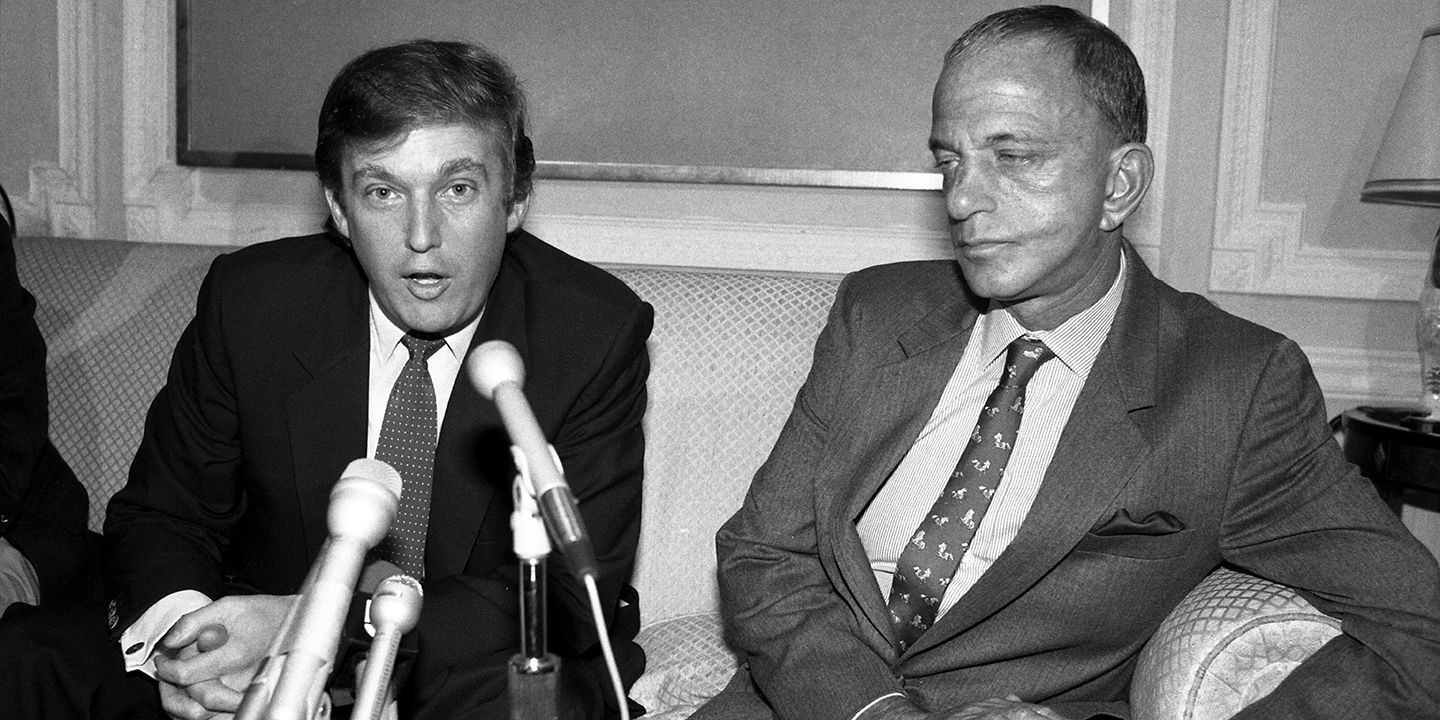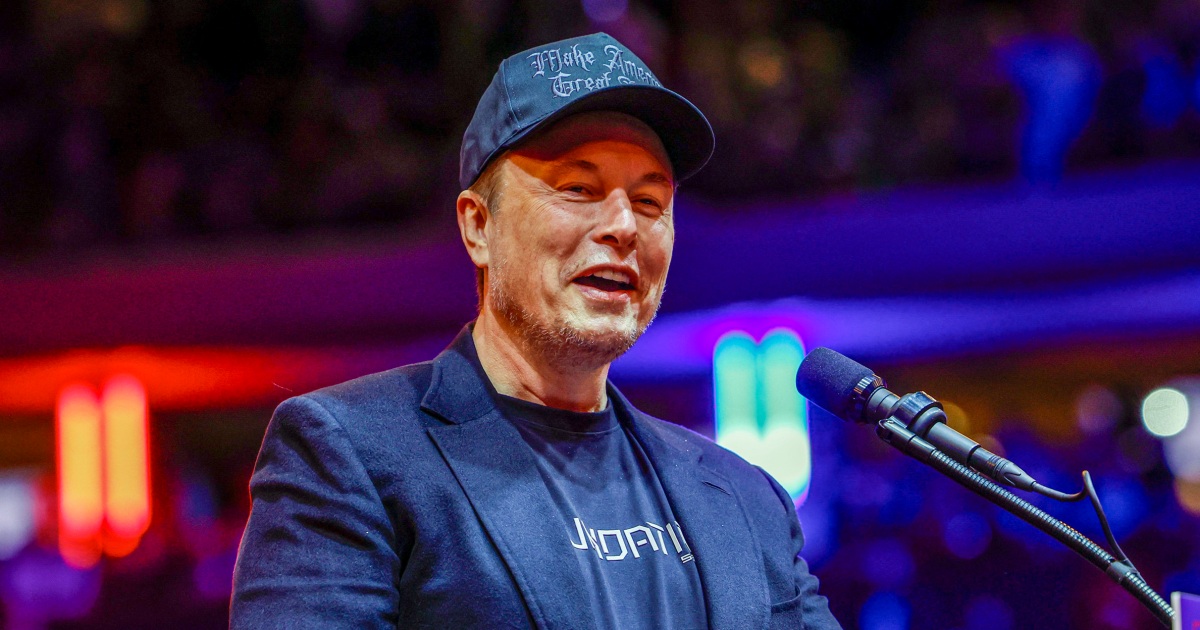…because that was the only way he could do it by fiat, and of course Trump would never lie about such things.
And, apropos of nothing, the WTO ruled that this assertion was bogus.
…because that was the only way he could do it by fiat, and of course Trump would never lie about such things.
And, apropos of nothing, the WTO ruled that this assertion was bogus.
And the Biden administration vowed to ignore the WTO ruling.
~Max
Not repealing the tariffs was Biden’s biggest mistake. Whoever he was listening to was a moron.
Also most politicians pre-Trump would try to have their lies be consistent and at least somewhat grounded in reality under the assumption that saying an obvious easy to check lie would backfire. Trump was too stupid to check himself in this way, but it ended up being his key to success because it turned out that his base actually preferred lies to truth.
I hadn’t heard this. Do you have a cite?
I seem to remember something about him okaying a plan for the FBI to operate covertly in his casino at some point long ago. Dunno if that’s what Sage_Rat is referring to.
~Max
After the shit he got over Afghanistan, it’s understandable that he didn’t want to deal with the BS politics involved in fixing Trump’s mistakes on tariffs. They were having a hard enough time getting their plans passed, and so decided not to invite any performative outrage over tariffs that might derail the few things they were making progress on. Give Harris a solid majority in Congress, and things will probably be different.
Saying a thing doesn’t make it true. Trump has 2 decades of complaining about the trade deficit and 5 minutes of talking about national security, when necessitated for legal purposes.
From a national security standpoint, our weapons are produced domestically and corn beats out rice for kcal per acre.
Steel and aluminum tariffs might have some national security value but, likewise, there’s value in redundancy so tariffing Canadian aluminum was fairly dumb. Plus, you can subsidize like you do for corn.
Frackers run their machines when the price of oil is high and they leave it all turned off and covered when oil is cheap. There’s nothing saying that steel can’t do the same.
Not to mention, we’re fucking Canada. Our national defense systems are probably more intertwined than any other two countries in the world. The notion that Canada would ever try to throttle steel shipments at a critical junction is just absurd.
Of the Trump-Biden tariffs, the Tax Foundation says, essentially:
We estimate the Trump-Biden tariffs will reduce long-run GDP by 0.2 percent, the capital stock by 0.1 percent, and employment by 142,000 full-time equivalent jobs.
Candidate Trump has proposed significant tariff hikes as part of his presidential campaign; we estimate that if imposed, his proposed tariff increases would hike taxes by another $524 billion annually and shrink GDP by at least 0.8 percent, the capital stock by 0.7 percent, and employment by 684,000 full-time equivalent jobs. Our estimates do not capture the effects of retaliation, nor the additional harms that would stem from starting a global trade war.
So, in short, the Trump-Biden tariffs are a net economic harm, but Trump’s proposed, new tariff scheme represents the economic version of “Hold my beer:”
Aside from the dramatically lower costs of labor in many countries who have filled the world’s manufacturing stage, they’re also not burdened with such things as worker protections, child labor laws, or environmental protections.
Much as Trump’s radical deportation plan would probably trigger an unprecedented inflationary surge, the cost of trying to lure back a significant chunk of the manufacturing of the goods that Americans buy would likely represent an unimaginable, and totally politically unsellable, amount of pain.
Americans have been made extremely comfortable with being able to buy an infinite supply of dirt-cheap, low-quality, essentially disposable crap. Going back 70 years, to when we all had far less stuff, but when income inequality was less dramatic would require an unfathomable amount of sacrifice – again: spread inequitably across the income strata.
The poor would, early, have to make do with fewer consumer goods, while the wealthy would see their profits dwindle based on union wages and advanced-economy worker and environmental protections.
Where we’d wind up … really isn’t all that bad, IMHO, but it’s next to impossible for me to imagine a path that truly points us back there.
When manufacturing and unions built the American middle-class, those were still essentially considered ‘respectable’ jobs. More importantly, they were jobs that allowed a middle-class worker to own a home and put their kids through college.
The nature of that work hasn’t necessarily changed all that much. Our view of it – much as we see with labor shortages in the construction ‘trades --’ has.
Trump is, and was, just gulling the rubes. Add me to the list of people who was floored by Biden’s retention of Trump’s tariffs.
Tariffs are very potent tools in the President’s foreign policy toolbox, considering the Constitution explicitly gives Congress (and not the President) the power to enact tariffs.
~Max
One country can institute tariffs unilaterally, and then the other usually institutes their own tariffs as retaliation. Lowering tariffs is different. You might do it with the hope that your trade partner(s) will also lower their tariffs on you, but that’s not guaranteed to happen. Lowering tariffs is best done as part of a neogitiated agreement between two parties, so you know you’ll get something in return. That may be the reason Biden didn’t do it singlehandedly.
1942.28 KB
https://www.politico.com/magazine/story/2016/05/donald-trump-2016-mob-organized-crime-213910/

Trump has been wrapped in Mafia connections for decades. Here's how he learned to talk like a don.
Trump has also, apparently, acted as a witness in quite a few FBI cases (e.g. Epstein and a few others) but it’s hard to hunt them down.
AKA, It’s easier to break something than to fix it.
23 Nobel Prize winning economists give Trump’s economic plan the thumbs down while Elon Musk mentions that … Trump’s plan might just hurt a little bit, but you’ll get over it:

Donald Trump wants the Tesla and SpaceX CEO, who himself has taken in billions from federal contracts, to oversee “efficiency” efforts for the government.
In a joint letter released last week, 23 Nobel Memorial Prize-winning economists warned that Trump’s plans for tariffs, tax cuts and an immigration crackdown — including detaining and deporting millions of people — would “lead to higher prices, larger deficits, and greater inequality.” More than anything, they wrote, Trump would undermine the rule of law and political certainty, “the most important determinants of economic success.”
That message has emerged from former President Donald Trump’s wealthiest backer, Elon Musk, who says that the GOP nominee’s plans to put the U.S. on firmer fiscal footing would likely entail “temporary hardship” for ordinary Americans.
Musk, reportedly, also said that – while he was grateful for the outpouring of genuine concern from ordinary Americans – he (Musk) would likely be just fine /s
Musk claims that when he’s in charge of government efficiency in the Trump administration that he can find two trillion in savings (from a budget of roughly $6.75 trillion, so close to a third). I’m skeptical that there’s that much waste to be found, especially if they’re not going to touch defense spending at all.
(Plus I’m amused that a man who already runs six companies is also going to be the government efficiency czar.)
$2T? Easy!
Just get rid of Social Security, Medicare, the VA, and all of HHS.
See - easy!
Cutting any and all federal spending that would previously have gone to states that voted against Trump has the potential to save a fair bit of coin.
$2T? Easy!
Just get rid of Social Security, Medicare, the VA, and all of HHS.
See - easy!
Supposedly, Trump or Musk have said that the defense budget, Social Security and Medicare are not going to be affected by the cuts. If they’re serious, everything else would have to be cut by more than fifty percent.
About 11.5% of the budget seems to be servicing the national debt. 78% of that comes from domestic lenders (banks and people who bought t-bills). You could maybe stop payments to China, which would cover 5% of the 11.5% (so, basically nothing) but, for almost anything else, if you stopped payment then you’d hammer the country’s credit score.
The items that Musk mentioned plus interest comes out to about to about 65-66% of the total budget. If you need to chop 2T out of 7T and you can’t touch 66% of it, you’re effectively removing everything else.
Mandatory spending includes:
There may be the imaginary view that most of Federal spending, outside of the big ticket items, goes to eco-warriors. I suspect that, once you take a look, there’s really not that much available to cut after you decide that we really do want border patrol, the coast guard, the FBI, the judiciary, etc.
That’s my sense; there’s this belief that there’s a vast amount of federal spending that’s “wasteful” but really very little is. (Though that depends somewhat on your perspective. I, for one, view a lot of spending on defense projects as wasteful.)